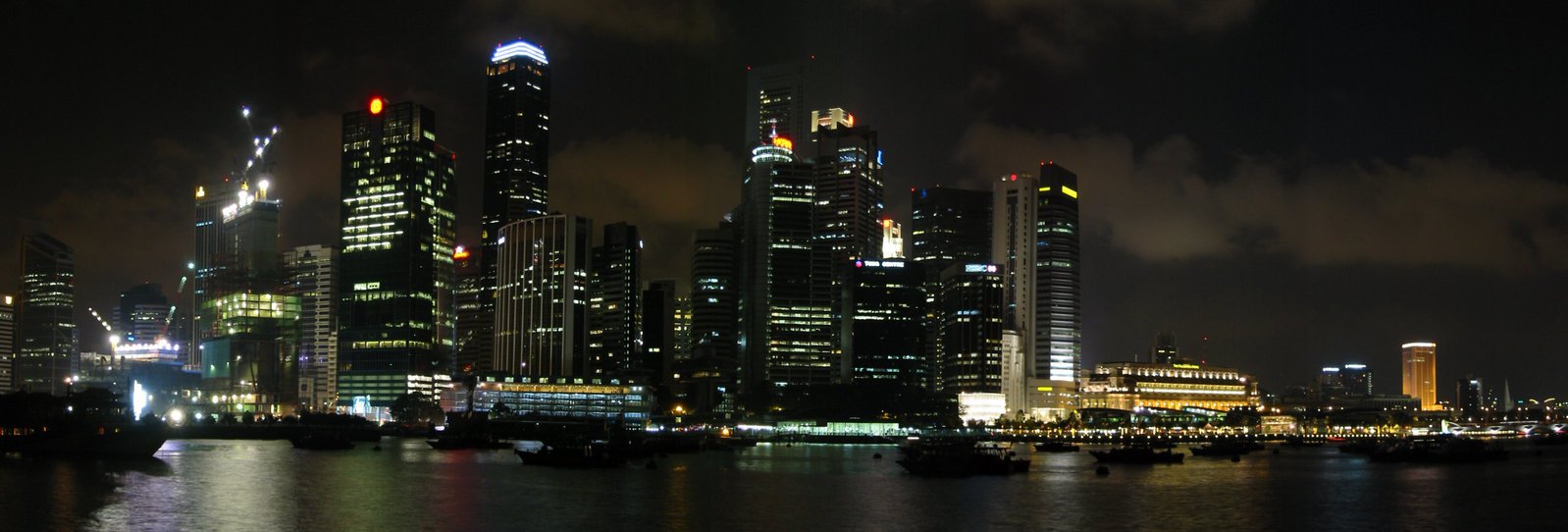

THE EPO grants software patents even though it's not supposed to. So does the USPTO in spite of 35 U.S.C. ۤ 101/Alice. Patent Trial and Appeal Board (PTAB) inter partes reviews (IPRs) would certainly invalidate these with the Federal Circuit affirming these decisions.
"All of these patents are bogus, bunk software patents"We've already expressed many criticisms of the Intellectual Property Office of Singapore (IPOS), where patent maximalists and even software patents are being tolerated. The same goes for SIPO in China, but not quite the JPO and KIPO in Japan and South Korea, respectively.
Singapore is basically racing to the bottom with software patents, as confirmed only hours ago ("How Singapore Is Fast-Tracking FinTech Patent Applications"). A FinTech patent is just a software patent with a buzzword, yet apparently IPOS is happy to glorify such patents:
The box-office smash hit, "Crazy Rich Asians", is on everyone’s lips (and social media feeds) nowadays. The Singapore-set Hollywood movie, featuring an all-Asian cast, comically peers into the lives of the one-percenters strutting their stuff in famously up-market Singapore. Love it or hate it, the movie nails one thing for sure: Singapore is a playground for the financially savvy; a haven for financial technology (commonly known as “FinTech”).
In this spirit, the Intellectual Property Office of Singapore (“IPOS”) has launched a fast-track patent scheme determined to accelerate innovation for finance sector inventions. This one-year scheme, dubbed the FinTech Fast Track (“FTFT”) initiative, began in April and will end on 26 April 2019. Essentially, FTFT provides for expedited prosecution of FinTech patent applications – a much welcomed initiative for the sector.
[...]
As for the general question, a 2013 Working Paper by the Grantham Research Institute on Climate Change and the Environment found that while participation was low, the priority given did speed processes up. As such, the initiative did succeed in accelerating development of clean technologies during the first years after the publication of the patents. As for Singapore, this blogger spoke with several FinTech patent examiners, who noted that to prevent abuse, priority for genuine Fintech patents is protected by trained examiners, who detect patent applications unrelated to FinTech but that are (mis)applied for under FTFT.
According to a research report published by Global Market Insights, the blockchain market size is expected to surpass USD 16 Billion by 2024. The blockchain technology builds a secure record of transactions between two parties, eliminating the need for a third-party intermediary. The technology was first applied in cryptocurrency and now, it is widely used in various industry. The market is expected to witness rapid growth as the technology can significantly reduce the cost of operation and enhance efficiency for businesses. As a result, the financial sector is expected to benefit the most from the development of the technology. Victory Square Technologies Inc. (OTC: VSQTF), Pareteum Corporation (NYSE: TEUM), Seven Stars Cloud Group, Inc. (NASDAQ: SSC), Appian Corporation (NASDAQ: APPN), Banco Bilbao Vizcaya Argentaria, S.A. (NYSE: BBVA).
In tech, innovation is everything. In innovation, intellectual property is, well, almost everything — it can be the hardware, the software, the processes that comes from the creative endeavor. You might consider patents a form of competitive advantage.
News came last week that, when it comes to patents tied to the blockchain landscape, Thomson Reuters has found that China, and Alibaba, have had an outsized showing, and seem to be accelerating their patent filing activity.